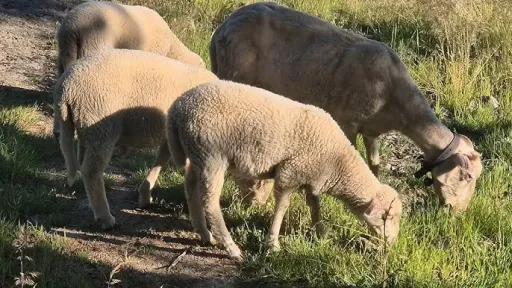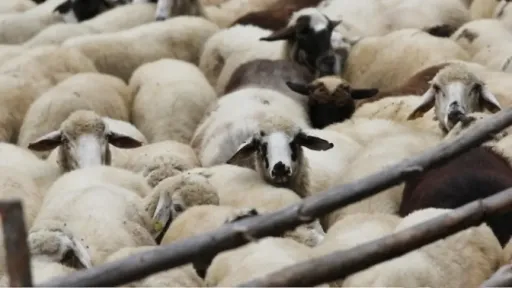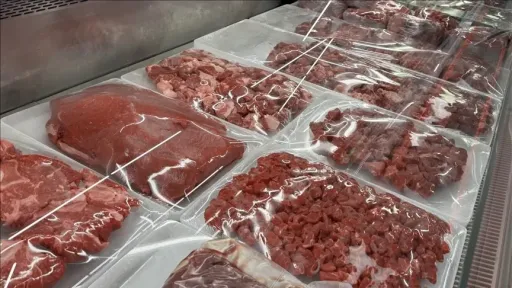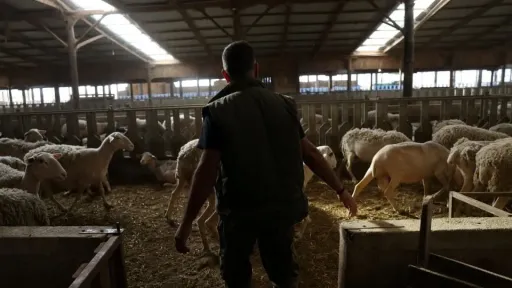Sheep Pox crisis in Greece: Over €350 million in damages, 410,000 animals lost

Greece’s livestock sector is facing one of its worst health crises in recent years, with sheep pox and other animal diseases causing estimated damages exceeding €350 million over the past 14 months. According to the Hellenic Livestock Association (SEK), over 410,000 animals have been lost due to disease outbreaks, with thousands of farmers now at risk of losing their livelihoods.
Speaking to the Athens-Macedonian News Agency (AMNA), SEK President Dimitris Moschos described the situation as "beyond a crossroads," warning that Greek livestock farming is collapsing, and urgent government intervention is needed to prevent irreversible losses.
Sheep Pox at the center of the crisis
Of the 410,000 animals lost, more than 300,000 deaths were attributed to sheep pox, which continues to spread in several regions. Additional outbreaks of peste des petits ruminants (PPR) and bluetongue disease have further compounded the crisis:
PPR: Caused the death of 80,000 animals during the summer of 2024
Bluetongue: Killed an estimated 30,000 animals, though it remains underreported and is believed to have become endemic
“Farmers are left to vaccinate their animals themselves. Nobody comes to help us,” Moschos said, criticizing what he sees as a lack of government action and inadequate disease surveillance.
Shrinking livestock population
According to SEK estimates, the real number of livestock animals in Greece has dropped to 6 million, contradicting the Ministry of Rural Development and Food’s official estimate of 7 to 8 million. Moschos warned that if current trends continue, Greek livestock farming may never recover.
Outbreaks worsening in Northern and Western Greece
The hardest-hit areas remain Thrace and Thessaly, but the situation is deteriorating in Western Greece, including Achaia. New outbreaks have also been reported in Serres, Katerini, Imathia, and Thessaloniki, with sporadic cases nationwide. Efforts to contain the spread are ongoing, but farmers argue they are too limited and too late.
Vaccination standoff: Economy vs. Survival
While many Greek farmers are demanding vaccination campaigns, the Agriculture Ministry has so far refused, citing concerns over feta cheese exports, which are worth an estimated €78 million annually. The ministry fears that vaccination could jeopardize the Protected Designation of Origin (PDO) status of Greek feta in international markets.
However, Moschos and EU officials argue that pasteurized products pose no public health risk, and that the economic survival of the livestock sector should not be sacrificed to protect a single export market.
“The EU has already clarified that pasteurized products can circulate freely. The entire primary sector cannot be endangered just for feta exports,” Moschos said.
European Commission urges action
In July, the European Commission issued a formal warning to the Greek government, stating that current containment measures are insufficient and urging mass vaccination to be seriously considered.
The EU Animal Health and Welfare Commission has already made 500,000 vaccine doses available and launched a tender for an additional 4 million doses to meet member states' needs, according to Moschos.
Expert: No risk to public health
While economically devastating, sheep pox does not pose a risk to humans, said Spyros Kritas, Professor of Microbiology and Infectious Diseases at Aristotle University of Thessaloniki.
“The virus is strictly animal-specific. It does not infect humans, nor does it remain in milk or meat from affected animals,” Kritas emphasized.
Farmers demand immediate action
SEK’s message to the government is clear:
“Immediate political decisions, realistic measures, and courage are needed—otherwise Greek livestock farming may never recover from the shock of recent years.”
With thousands of jobs and food supply chains at stake, farmers and experts alike are calling for urgent action to address what is quickly becoming a national agricultural emergency.







